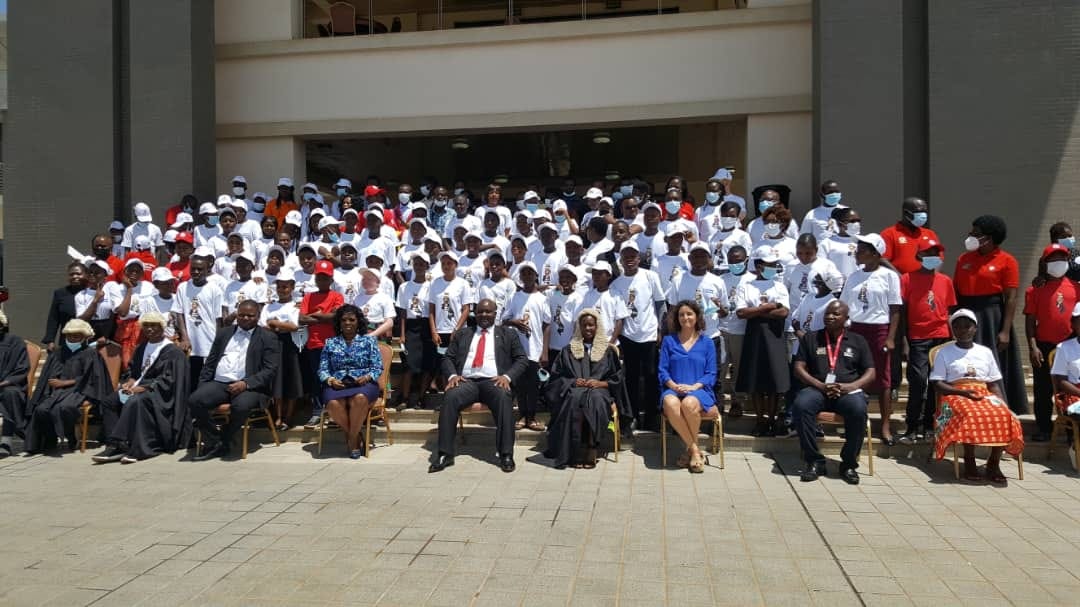People question relevance of children's parliament as new session begins
Apart from the participants gaining exposure, experience, and all the benefits attached to it, do the children's parliament sittings bring any benefit to the crowd they claim to represent?
First Deputy Speaker of Parliament, Madalitso Kandodo on 16th December 2021 presided over the launch of the session of the National Children's Parliament at the parliament building, in Lilongwe city.
In this session, 80 participants for the National Children’s Parliament have been drawn from Mzimba, Kasungu, Neno, Dowa, Lilongwe, Ntcheu, Zomba, Mwanza, Phalombe, and Mulanje districts.
Speaking as Guest of Honor at the launch, Kazombo said, as the Parliament of Malawi, they have the welfare of Malawian children at heart as manifested in several ways including the enactment of various pieces of child-related laws to ensure that all children are protected by laws.
“Parliament designated a special day when matters concerning children will be discussed. This will provide an opportunity for your revolutions to be thoroughly discussed by Members of Parliament at the National level," he said.
The Second Deputy Speaker of National Children’s Parliament, who was also Speaker for Neno Children Parliament, which took place on 30th and 31st August of 2018, Triphonia Kaduya asked for proper consideration of their discussions.
"As child parliamentarians, we expect that issues that will be raised here will be addressed by government and all relevant stakeholders," she said.
Echoing Kazombo's word at the launch, Secretary for the Ministry of Gender, Community development and Social welfare, Rosslyn Makhumula, promised the ministry's continued support and provision of requisite leadership to make child participation meaningful.
“Let me promise that as a ministry, we will make sure that the resolutions coming from this forum will be enacted upon. We will facilitate that they get to relevant duty bearers," said Makhumula.
The Director of Programs for Plan International, Laula Criade, said the inclusion of children is the only way to achieve the 2063 Development Strategy, saying children are the largest group in the country.
“As development partners, we are ready to hear your voices, needs, and issues that impact your lives. We will wait for your recommendations and commit to taking action accordingly," he said.
But then the question remains: apart from the participants gaining exposure, experience, and all the benefits attached to it, do the children's parliament sittings bring any benefit to the crowd they claim to represent?
The Neno Children Parliament sitting of 2018 among others talked about the lack of female teachers in districts and the importance of female teachers who act as role models in various primary schools.
The child parliamentarians realized that girl children meet a lot of abuse in their respective schools and the absence of female children teachers as advisers and counselors worsen the situation as they have no one to talk to.
On this issue, the sitting resolved that government should build enough school blocks, deploy well-trained teachers in all primary schools and renovate all dilapidated teachers' houses as a way of motivating teachers.
Contrary to the recommendations of the Neno Children Parliament sitting, the headteacher for a school with five teachers, Dowa 1 Primary School, in Dowa district, Langton Kachikopa, is seeking the help of good wishers to fix his deputy's house which in November of 2021 got damaged by a whirlwind.
In November 2020, children from seven Traditional Authorities of Dowa district were drawn for Children Parliament which took place at Parliament building in Lilongwe.
In response to the scarcity of teachers, the government is yet to deploy the last cohort of Initial Primary Teacher Education (IPTE 16) which has stayed over two years unrecruited.





